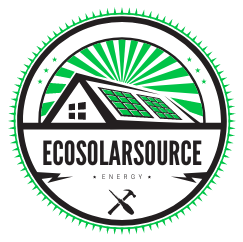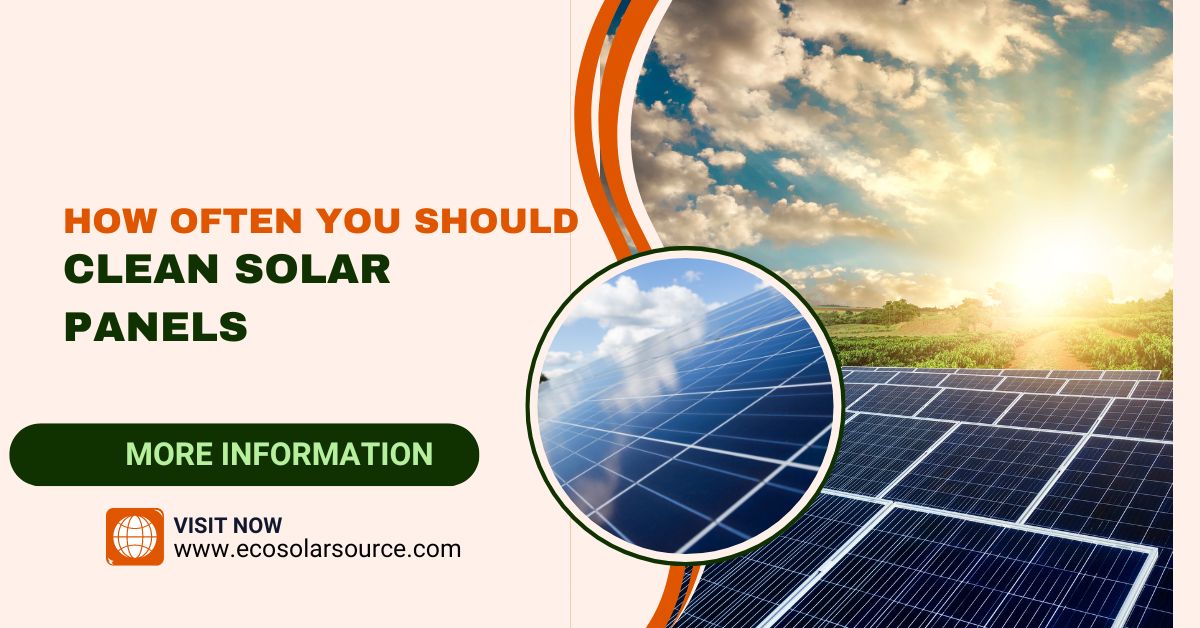How Often You Should Clean Solar Panels
Know the details about How Often You Should Clean Solar Panels, Regular cleaning of solar panels is essential to maintain optimal efficiency. Solar panels should be cleaned every 6 to 12 months, depending on your location and environmental factors.
In areas with minimal dust, rain may naturally wash away debris, requiring less frequent cleaning. However, if you live in regions prone to heavy dust, pollution, bird droppings, or pollen, more frequent cleaning may be necessary—every 3 to 4 months. Regular inspections help identify any dirt accumulation that could reduce energy output. Use non-abrasive materials and soft water to avoid damaging the panels, ensuring peak performance and energy production year-round.
Table of Contents
How Often You Should Clean Solar Panels
Solar panels are a fantastic investment for homes and businesses, providing clean, renewable energy while reducing electricity bills. However, like any investment, they require maintenance to ensure they perform optimally. One of the most common maintenance tasks is cleaning the solar panels. Dirty panels can significantly reduce the energy output, which defeats the purpose of installing them in the first place. In this blog, we’ll discuss how often you should clean your solar panels, why it’s important, and some best practices to maintain peak efficiency.
Why Cleaning Solar Panels is Important
Solar panels convert sunlight into electricity through photovoltaic (PV) cells. When dirt, dust, bird droppings, leaves, or other debris accumulate on the panels, they block sunlight from reaching these cells, reducing their efficiency. A well-maintained and clean solar panel system can perform up to 30% better than a dirty one. Even though some people assume that rain can clean solar panels naturally, this is not always the case. In fact, in many regions, rain may not be frequent or heavy enough to wash away accumulated grime.
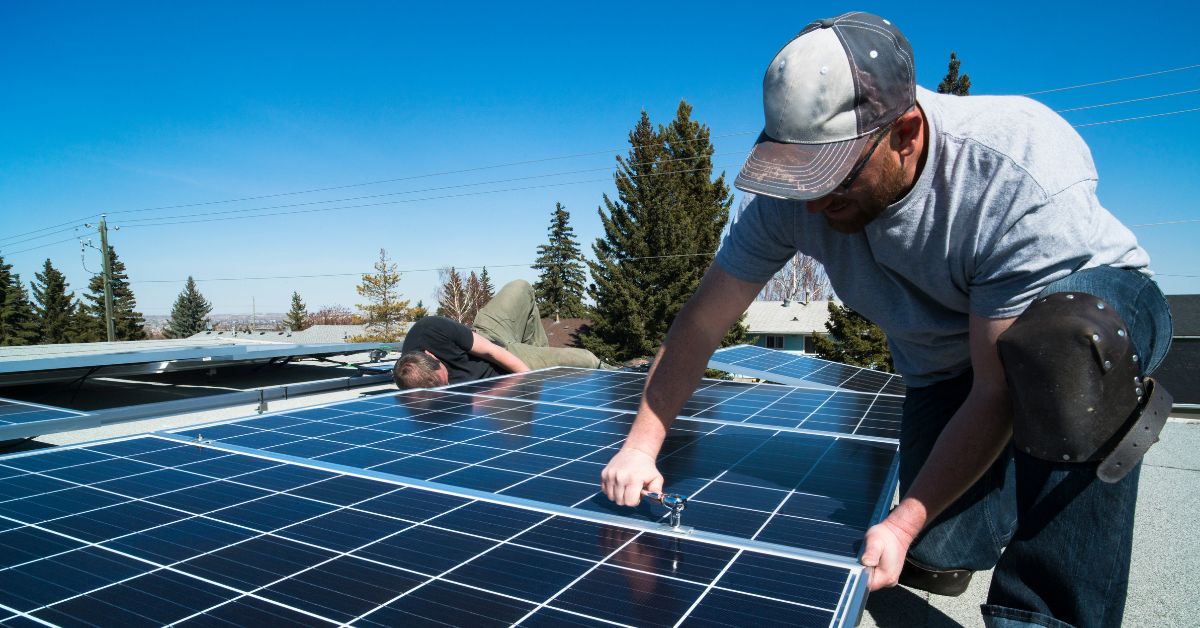
Furthermore, if you live in an area prone to dust storms, pollen, or pollution, your solar panels may get dirty much more quickly than in other locations. As solar panels become more popular worldwide, understanding the importance of keeping them clean is essential for maximizing energy production.
Factors Affecting How Often You Should Clean Solar Panels
There’s no one-size-fits-all answer to how often you should clean your solar panels. The frequency of cleaning will depend on various factors, including:
- Geographical Location:
- Areas that experience frequent dust storms, and pollution, or are close to highways or industrial zones will accumulate more grime and dirt on solar panels. Similarly, coastal areas are prone to salt deposits, which can affect panel performance.
- Weather Conditions:
- Rainfall is often considered nature’s cleaning system for solar panels, but in areas with little rainfall or heavy pollution, the natural cleaning effect is minimal. On the other hand, areas with heavy rains and storms might see dirt splashed back onto the panels, causing smears or additional build-up.
- Proximity to Trees or Wildlife:
- If your solar panels are located near trees, you might experience issues with fallen leaves, pollen, or bird droppings. Bird droppings are particularly harmful because they can block a large portion of the panel from receiving sunlight, reducing efficiency more than dust or dirt.
- Tilt Angle of the Panels:
- Panels with a steeper tilt tend to self-clean better during rainfall, as water runs off more effectively, carrying dust and debris with it. Flat or minimally tilted panels may require more frequent manual cleaning since water may pool on the surface.
- The Size of the System:
- A larger solar panel system requires more attention to cleaning, as a single dirty panel can affect the overall efficiency of the system. Smaller systems, though still susceptible to dirt, may not experience as drastic an impact when a few panels are dirty.
General Guidelines for Cleaning Frequency
Based on the factors above, here are some general cleaning guidelines:
- Every 6 Months:
- In areas with moderate dust levels and occasional rain, cleaning every six months should be sufficient. This is especially applicable to suburban and urban areas with minimal pollution and no major tree coverage.
- Every 3-4 Months:
- For locations near industrial zones, areas with high pollen levels, or where bird droppings are common, cleaning every 3-4 months may be necessary. This schedule ensures that the panels stay free of build-up and operate efficiently.
- Monthly or Bi-Monthly:
- In areas prone to dust storms, heavy pollution, or extreme weather conditions (like deserts or coastal regions), cleaning every month or two might be required. In such environments, the accumulation of dirt can significantly reduce energy production if left unattended.
- After Major Storms or Events:
- If there’s a major storm, a construction project nearby, or anything that kicks up a lot of dust or dirt, it’s a good idea to check and clean your panels soon afterward. For instance, a heavy dust storm can leave a thick layer of dirt that significantly blocks sunlight, leading to an immediate drop in efficiency.
How to Tell if Your Solar Panels Need Cleaning
You don’t always need to stick to a rigid cleaning schedule. Sometimes, a simple inspection is enough to determine whether cleaning is required. Here are some tips on how to assess if your solar panels need cleaning:
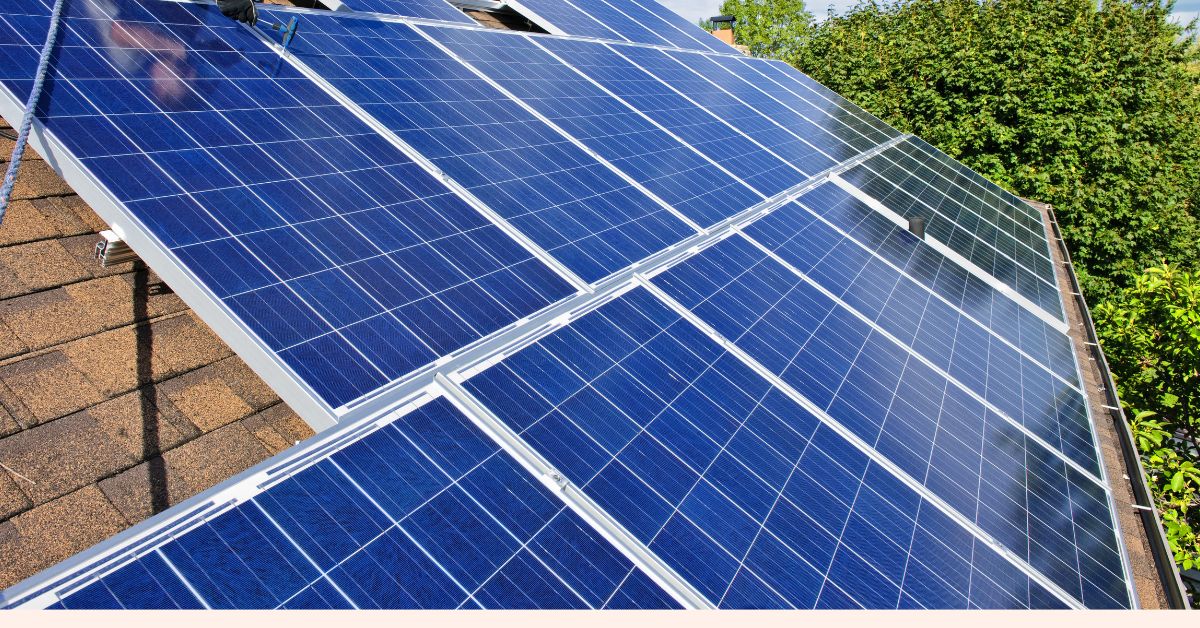
- Monitor Energy Output:
- One of the best ways to determine whether your solar panels need cleaning is by monitoring their energy output. If you notice a consistent drop in energy production, despite sunny weather, dirt or grime may be affecting the panels. Many solar panel systems come with monitoring apps that allow you to track their performance.
- Visual Inspection:
- Conduct a visual inspection every few weeks or after a significant weather event. If you see visible dirt, bird droppings, or a layer of dust, it’s time to clean your panels. However, keep safety in mind if your panels are located on a high roof or in a difficult-to-access location. Consider hiring a professional if necessary.
- Rainfall and Weather Patterns:
- If your area experiences frequent rain, you might not need to clean the panels as often, especially if they have a steep tilt. However, if the rain is light or infrequent, don’t rely on it to clean your panels.
- Solar Panel Monitoring Systems:
- If your system has an integrated monitoring system, you can track performance in real-time. Any significant drop in efficiency can be an indicator that it’s time to clean the panels.
How to Clean Solar Panels
Once you’ve determined that your panels need cleaning, the next step is to do it correctly. Improper cleaning can damage the panels or reduce their efficiency, so follow these steps to ensure safe and effective cleaning:
- Turn Off the System:
- Before cleaning your solar panels, make sure to turn off the system for safety reasons. Even though solar panels are generally safe, cleaning them while they are producing electricity can present risks. Follow your manufacturer’s instructions on how to shut down the system before cleaning.
- Use Soft Materials:
- Avoid using abrasive materials that can scratch the surface of the panels. A soft sponge or cloth should be used with clean water. You can also use a hose with a gentle spray to wash away dirt. Never use high-pressure water, as this can damage the solar cells.
- Use Mild Detergents:
- If water alone isn’t enough to clean your panels, you can use a mild, non-abrasive soap or detergent. Avoid harsh chemicals, as they can damage the glass surface or the anti-reflective coating of the panels.
- Clean in the Early Morning or Late Afternoon:
- It’s best to clean your panels during the cooler parts of the day, such as early morning or late afternoon. Cleaning them when they are hot can cause the water to evaporate quickly, leaving streaks or residue. Additionally, cleaning during cooler times minimizes the risk of cracking the panels due to temperature changes.
- Use a Long-Handled Brush or Wiper:
- For hard-to-reach areas, consider using a long-handled brush or wiper. Many companies manufacture brushes specifically for cleaning solar panels. These tools make it easier to clean large arrays without having to get onto the roof.
- Be Safe:
- If your solar panels are on the roof, safety is paramount. Use appropriate safety equipment, such as harnesses and non-slip shoes, or consider hiring professionals to do the job. A fall from the roof is not worth the risk.
- Hire Professionals if Needed:
- If you’re not comfortable cleaning the panels yourself, or if they are installed in hard-to-reach places, consider hiring a professional solar cleaning service. These professionals have the right tools and expertise to clean your panels efficiently without damaging them.
Do You Need to Clean Your Solar Panels?
Some homeowners and businesses wonder if cleaning solar panels is necessary, especially when considering factors like rainfall and dust accumulation. While it’s true that rain can help clean panels to some extent, it’s rarely enough to remove all the dirt and debris. For example, while light rain may rinse off loose dust, it can also cause dirt to clump together, leaving streaks or areas of build-up on the panel. Additionally, some grime, like bird droppings, won’t wash off with rain alone.
Furthermore, dust and pollution can accumulate slowly over time, so even though you may not see the build-up immediately, it can still affect the efficiency of the panels. Regular cleaning ensures that your solar panels are always performing at their best, providing maximum energy output and savings.
Potential Consequences of Not Cleaning Solar Panels
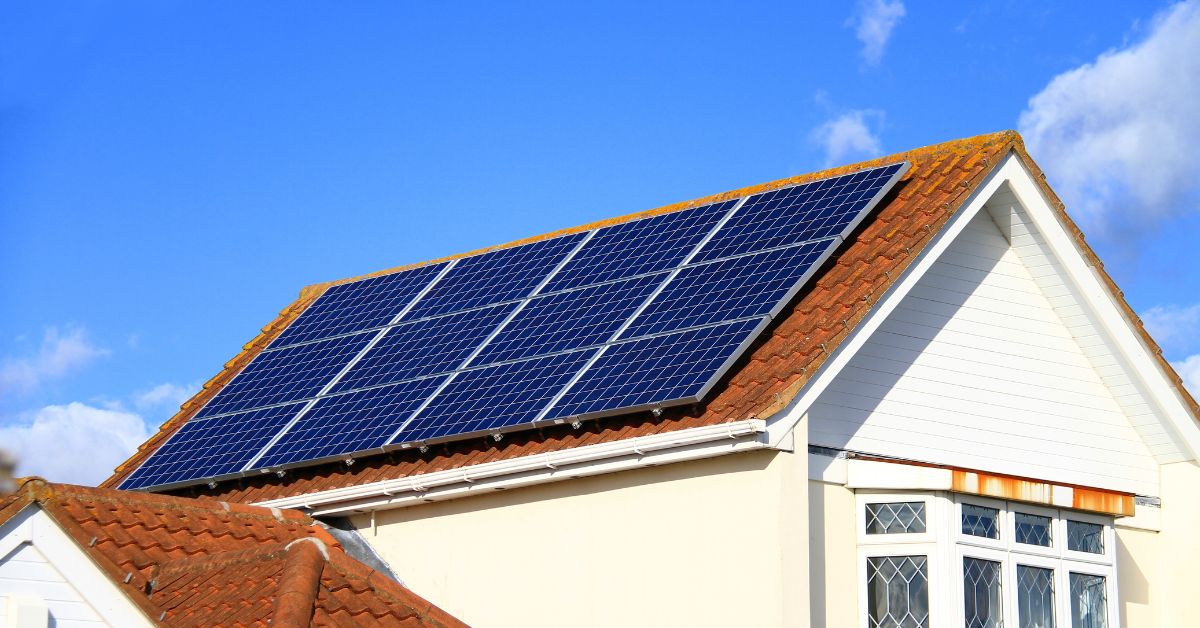
Failing to clean your solar panels can have several consequences:
- Reduced Energy Production:
- Dirty panels produce less energy. Even a thin layer of dust or debris can reduce sunlight absorption by up to 5-20%. Bird droppings or heavy build-up can reduce efficiency by even more.
- Shortened Lifespan:
- Dirt and grime can cause the panels to overheat. When the sunlight is partially blocked, certain areas of the panel may heat up more than others, potentially leading to wear and tear. Over time, this can shorten the lifespan of the panels.
- Warranty Issues:
- Some solar panel manufacturers require regular cleaning as part of their warranty terms. If your panels become damaged due to negligence, such as not cleaning them, your warranty may be voided.
FAQs About How Often You Should Clean Solar Panels
Q1. How often should solar panels be cleaned for optimal performance?
It’s recommended to clean solar panels at least twice a year. However, depending on your location and environmental conditions, you may need more frequent cleaning.
Q2. Can dirty solar panels affect energy efficiency?
Yes, dirt, dust, and debris can block sunlight, potentially reducing the efficiency of your solar panels by up to 20%.
Q3. What environmental factors impact how often I should clean my solar panels?
Areas prone to dust, pollution, bird droppings, or near trees may require more frequent cleaning compared to regions with regular rainfall.
Q4. Do I need to clean solar panels after every storm or rainfall?
Rain can help remove some surface dirt, but it often leaves behind residue and minerals. After a storm, inspect your panels and clean them if there’s noticeable debris or residue.
Q5. How do I know when it’s time to clean my solar panels?
A drop in energy output or visible dirt on the surface of the panels is a strong indicator that it’s time for a cleaning.
Q6. Can I clean solar panels myself, or should I hire a professional?
You can clean solar panels yourself with a soft brush, water, and mild detergent. However, professional cleaning is recommended for hard-to-reach installations or to ensure a thorough job without damaging the panels.
Q7. Are there any risks to cleaning solar panels too frequently?
Frequent cleaning is generally safe if done properly, but harsh chemicals or abrasive materials can scratch the surface and damage the protective layer of the panels.
Q8. Is there a specific season when solar panels should be cleaned more often?
In dry or pollen-heavy seasons (spring and summer), you may need to clean your panels more frequently due to increased dust and pollen accumulation.
Q9. Will cleaning solar panels void the manufacturer’s warranty?
Most manufacturer warranties remain valid as long as you follow their maintenance guidelines, which typically include regular cleaning without using harsh chemicals or abrasive tools.
Q10. Do solar panels in urban areas need to be cleaned more often than in rural ones?
Yes, urban areas may expose solar panels to higher levels of pollution, smog, and bird droppings, requiring more frequent cleaning than those in less polluted rural areas.
Keeping your solar panels clean is a simple and cost-effective way to ensure they operate at peak efficiency. Depending on where you live, your cleaning frequency may vary, but regular inspections and monitoring will help you determine when it’s time for a cleaning. Whether you decide to clean the panels yourself or hire a professional, ensuring that your solar panels are clean will maximize your energy production and protect your investment for years to come. Remember, the cleaner the panels, the more sunlight they absorb, and the more electricity they produce!
Click here to learn more about How Often You Should Clean Solar Panels
Click here to learn more about Clean Solar Panels Without Water
